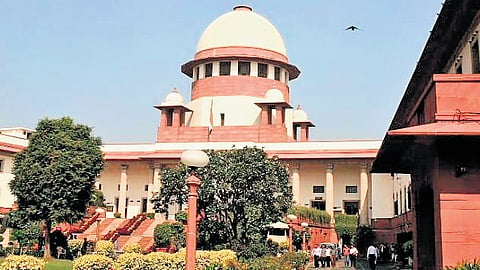

The Supreme Court’s two-judge vacation bench on Friday allowed the plea of the National Board of Examinations (NBE), granting an extension of time to conduct the NEET-PG 2025 examination on August 3, after noting that the petitioner's request was “bona fide”.
The NBE had filed an application with the apex court on 3 June, seeking permission to reschedule the examination. This followed the Supreme Court’s earlier order on 30 May, which disallowed the conduct of the exam in two shifts and directed that it be held in a single shift.
The court acknowledged the genuineness of the NBE’s request. “We are satisfied that the prayer for extension of time to reschedule the exam on 3 August 2025 is bona fide. Accordingly, the time allowed by our order dated 30 May is extended, and the NBE is permitted to hold the exam on 3 August 2025. No further extension shall be granted,” stated the vacation bench, comprising Justice Prashant Kumar Mishra and Justice Augustine George Masih.
Initially, the court had questioned the NBE's plea for a two-month extension. However, it later noted that the reasons cited for the revised date appeared to be bona fide.
During the hearing, Additional Solicitor General (ASG) KM Nataraj, representing the Union of India, argued that conducting the exam on 15 June posed significant logistical challenges. High-level meetings had been held, and it was determined that the number of exam centres would need to be doubled. Ensuring adequate security was also a major concern, as even a minor breach could compromise the integrity of the examination.
The court responded by stating that security arrangements would have been necessary regardless of the date. The ASG clarified that while the 15 June plan required 450 centres, the revised single-shift model would need nearly 1,000 centres—necessitating double the arrangements.
Counsel representing the candidates opposed the NBE’s application, arguing that TCS, the technology partner, should not delay NEET-PG on account of other examinations.
The NBE, however, maintained that the delay was necessary to ensure the exam was conducted without compromise. “The time is taken only for the benefit of the students,” it stated.
The court, while disposing of the application, noted that the intervention application filed by the NBE sought to reschedule the exam for 3 August 2025—claimed by both the NBE and TCS to be the earliest feasible date. “We allow it,” said the court in its order.
Previously scheduled for 15 June, the exam was postponed after the Supreme Court, on 2 June, ordered that it be conducted in a single shift. The following day, the NBE moved the court, citing various constraints preventing it from holding the exam before 3 August.
The NBE explained that, per TCS, the period between 30 May and 15 June was insufficient to organise the exam in a single shift. This format demands significantly more exam centres, broader geographical coverage, and extensive logistical planning, including the supply and deployment of hardware.
Each test centre requires the dedicated deployment of trained technical personnel, invigilators, administrative staff, and independent observers. “Mobilising and training such personnel across hundreds of new locations in under two weeks—particularly during a period of ongoing national and academic activities—is a logistical impossibility,” the NBE stated. Operational readiness of each centre also requires verification through mock drills, load tests, and system audits to avoid last-minute failures.
In addition to these logistical and infrastructural challenges, the NBE submitted that several processes must be repeated in light of the new single-shift requirement.
It was further submitted that over 1,000 centres will need to be booked and prepared. “The infrastructure required to accommodate 242,679 candidates, including a buffer, necessitates availability for approximately 2.70 lakh candidates nationwide, which will require considerable time,” the NBE explained in its application.